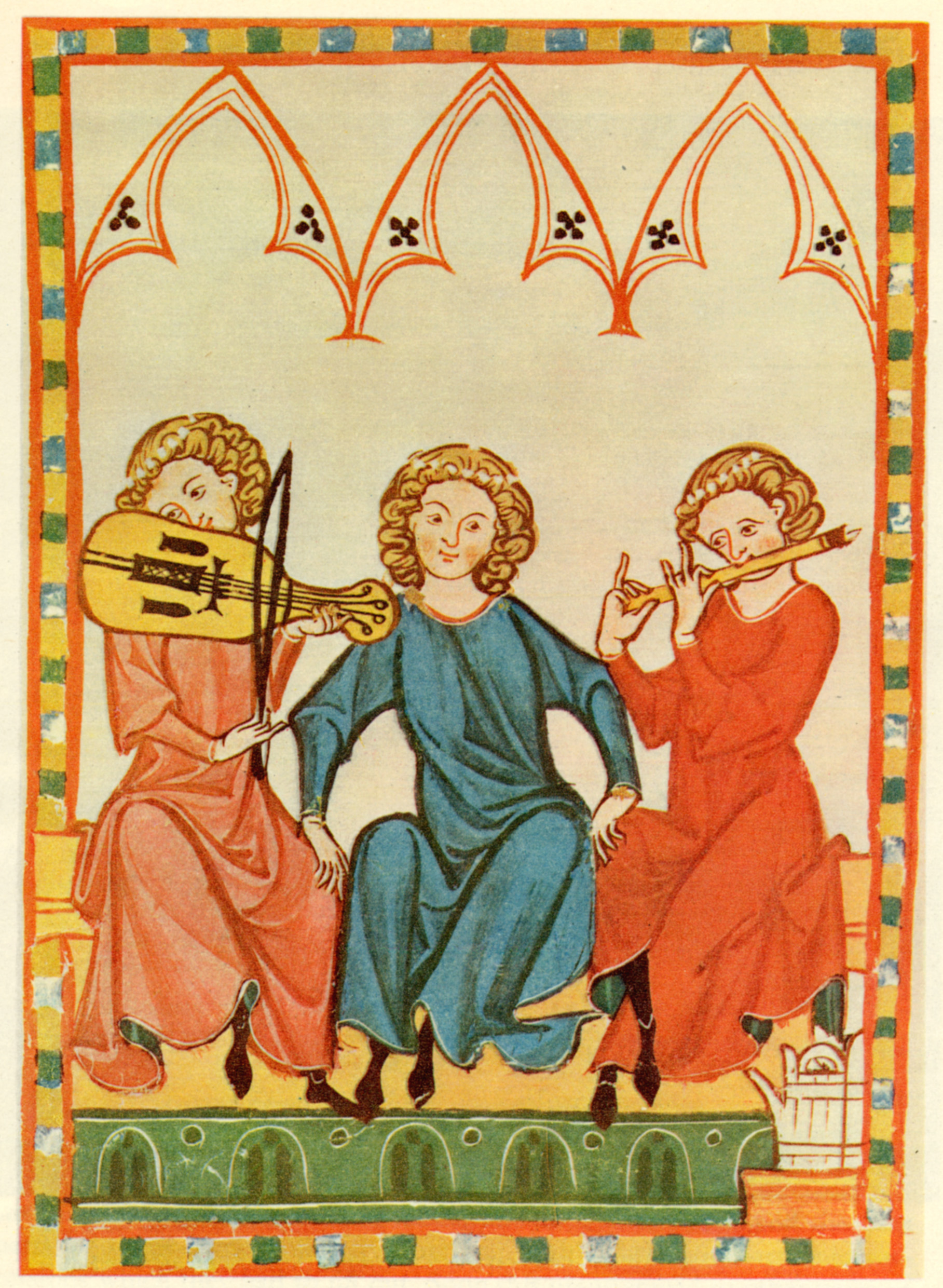Minnesinger << MIHN uh `sihng` uhr >> was one of a group of German love poets who flourished from the late 1100’s to the late 1300’s. The minnesingers sang their poetry to music at court festivals.

Minne was an old German word meaning love. The minnesingers’ expressions of love were regulated by the courtly society that placed much value on form. Courtly love, as many minnesingers portrayed it, was the hopeless love of a knight for a lady of high station. The knight’s plea that the lady answer his love was often expressed in feudal terms such as a vassal might use in begging a favor from his lord. The lady usually remained unapproachable.
The doctrines and forms of courtly love developed in southern France and spread to Germany. In addition to imagery from feudal ties, several literary traditions influenced the minnesingers. These included Arabic poetry transmitted from Spain, classical literature such as Ovid’s The Art of Love, and medieval Latin poetry. The homage paid to the Virgin Mary in the 1100’s also contributed to the idealization of women so basic to much of courtly love poetry.
The leading minnesingers included Dietmar von Aist, Kurenberger, Heinrich von Veldeke, Friedrich von Hausen, Heinrich von Morungen, Reinmar von Hagenau, Walther von der Vogelweide, Neidhart von Reuenthal, Tannhauser, and Ulrich von Lichtenstein.
